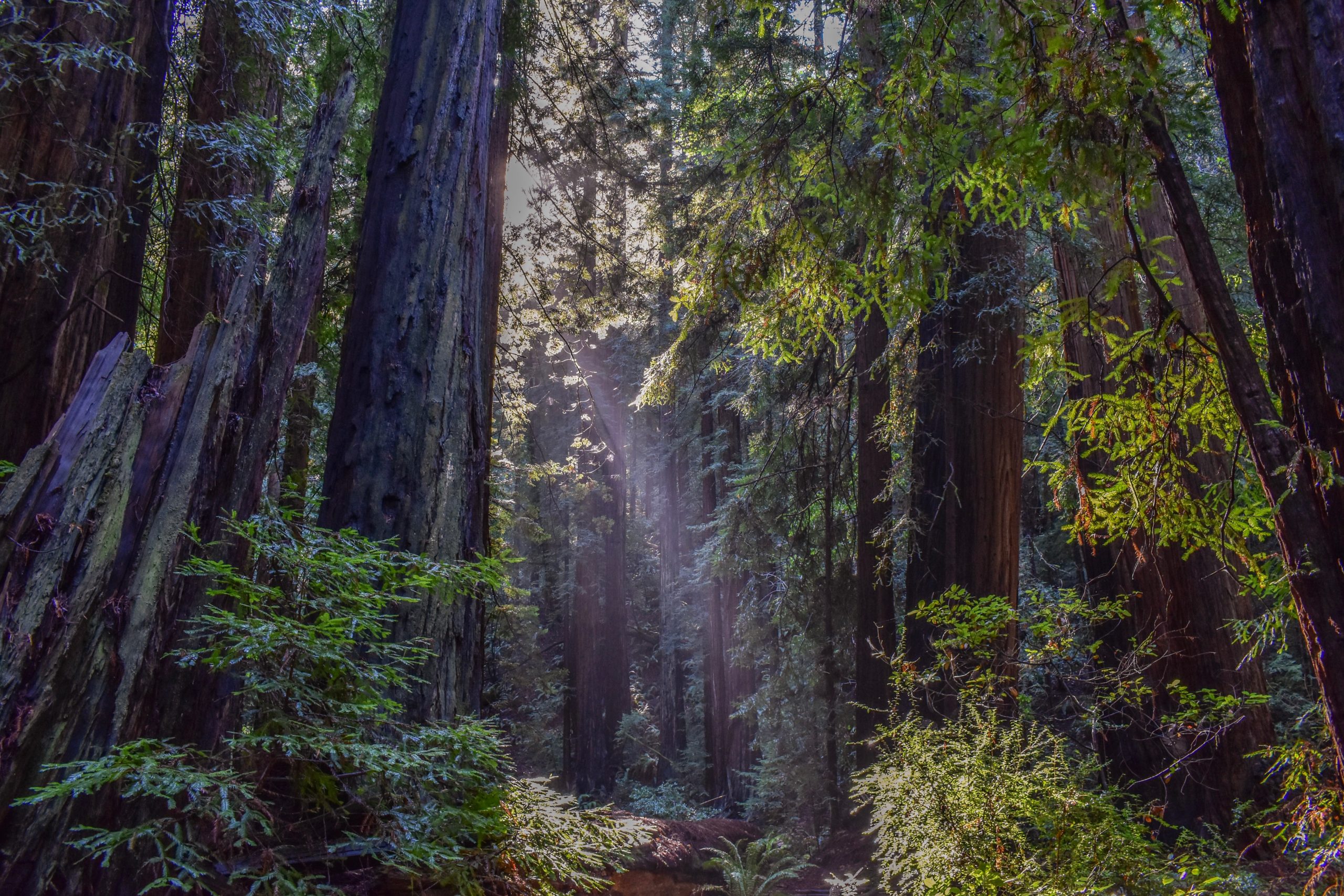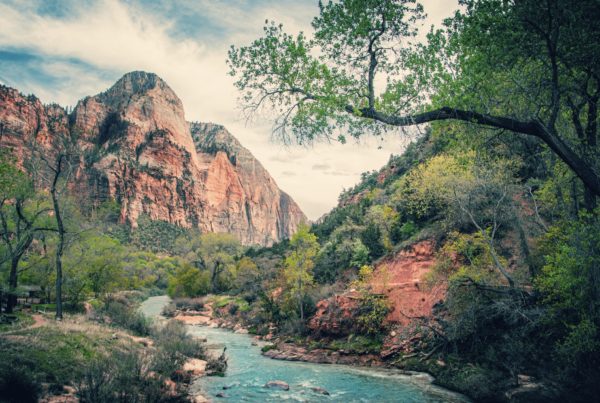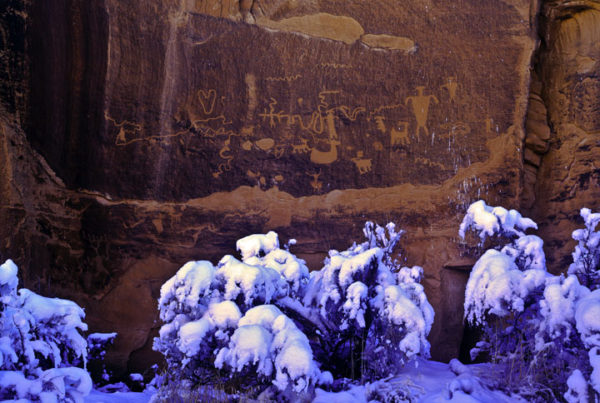“But ask now the beasts, and they shall teach thee; and the fowls of the air, and they shall tell thee: Or speak to the earth, and it shall teach thee…” – Job 12:7-8
The most common sacred text in the western world is the Bible. It is the story of a hardened people learning to belong to a desert and their God. It shifts to become the story of that same God belonging to the desert and the people in the Incarnation of Jesus. Written over thousands of years, The Bible is a rich collection of spiritual wisdom gleaned from millennia of desert living.
We Mormons have a few more sacred texts in The Book of Mormon, Doctrine & Covenants, and the Pearl of Great Price. All came through Joseph Smith—American Prophet and religious genius—and all demonstrate that God has never stopped speaking to the world.
Regardless of continent or spiritual community, sacred texts contain the collected spiritual wisdom of the human species and are the result of the intertwining of the divine and the human mind. In their pages are deeply human stories of struggle and suffering as well as ascension and celebration. By learning to read these texts, we can gain insight into our lives, discern spiritual truths, and, if we’re lucky, experience the divine reaching back to us.
The First Testament
But what of God’s dealings with everything else. If sacred text is the result of God and humans reaching towards each other, what of everything non-human—animal, rock, or flower? While God’s work and glory deeply involve humanity, surely God isn’t as anthropocentric as we are. In fact, Gods says as much. Maybe it is time we learn, like Job learned, that God is up to much more in this universe than attending to the needs of us humans. We are important, yes. But so is everything else.
As our scripture attests, God is intimately at work within the universe, perhaps more intimately even than God is able to work with us. D&C 88:7-13 states that God is in the light of the sun and stars, is the power of the earth, and sits in the bosom of eternity amidst all things. The section continues on to say that anyone who has seen the work of nature, has “seen God moving in his majesty and power.”
Pause for a moment and turn your attention to a window if you are near one. See the Earth—saturated in divine light—glowing from the inside out. Consider for a moment the Earth as sacred text. Inscribed with wisdom and truth from the first moments of Creation. Every droplet, mountain, and creature bearing some secret—some pearl of great price. Imagine as though the wind in the trees were the rustling pages of the Book of Nature: The First Testament of a Living God.
The Universe is 13.8 billion years old and the Earth, our home, is 4.6 billion. For eons and eons, God has been in dialogue with all things. In fact, God has been in dialogue with the Earth and Universe far longer than He has been in dialogue with us. By comparison, the oldest sacred texts (including the Bible), are at most 5000 years old. That is a grain of sand next to a mountain. The collected wisdom of nature far surpasses our own.
While humans, as a species, have been around for 100,00 years, redwood trees have been alive as a species for 240 million years. As Robin Wall Kimmerer eloquently puts it in her masterful book Braiding Sweetgrass,
“in Native ways of knowing, human people are often referred to as “the younger brothers of Creation.” We say that humans have the least experience with how to live and thus the most to learn—we must look to our teachers among the other species for guidance. Their wisdom is apparent in the way that they live. They teach us by example. They’ve been on the earth far longer than we have been, and have had time to figure things out.”
Maybe it is time we learned the wisdom of the Redwood.

The Book of Nature: A Primer
In the western world, we have largely lost the ability to commune with and read the Book of Nature in any meaningful way. Yes, there are some enthusiasts, scientists, and poets who still transmit some of the old ways of knowing the Earth. But we lay-people have been so separated from nature by industry and economics as to make us nearly illiterate in a world saturated with wild wisdom.
However, all is not lost. We humans were born from the Earth. The minerals in our bones came from the soil. The water in our blood came from the ocean. And the oxygen animating our every second comes from the sky. We truly are children of Earth. Reading the Book of Nature is an intuitive exercise baked into us over millennia of intimate communion with the elements we are made of.
The proper place to start reading the Book of Nature is where an encounter with wild things leaves us—a position of humility and awe. A humble human knows they have something to learn and that they are not the center of all things. And a human full of awe is a person who understands, if only briefly, the sacred reality of Earth.
Moses chapter 1 is a model for this process. Verse 7 reads, “And now, behold, this one thing I show unto thee, Moses, my son, for thou art in the world, and now I show it unto thee.” God then shows Moses the whole of the Earth and “the ends thereof” which can only mean he got more than a birds-eye view of things. This vision is combined with seeing the full extent of humanity.
When the vision leaves him exhausted, Moses falls to the ground awestruck. And for the space of many hours, he is forced to contemplate his own insignificance. “For this cause I know that man is nothing.” Such is the effect of profound experiences with the Earth. Who has not stood at the rim of the Grand Canyon and not felt the same? Who has not been tossed by waves at the beach and not come away with a sense of their own nothingness? After this realization, God steps nearer to Moses to reassure that he is still important. Integral even. But with the visionary emphasis that so is everything else.
Awe and humility must be the starting points for reading the Book of Nature. It is only from this position we are able to hear the wisdom of trees. Of birds. Of creatures we previously thought less than ourselves. Only when we begin with our own insignificance are we able to contemplate the significance of every thing else.
The Book of Nature: The First Testament of a Living God is written in the language of awe and is translated through humility and curiosity.




2 Comments